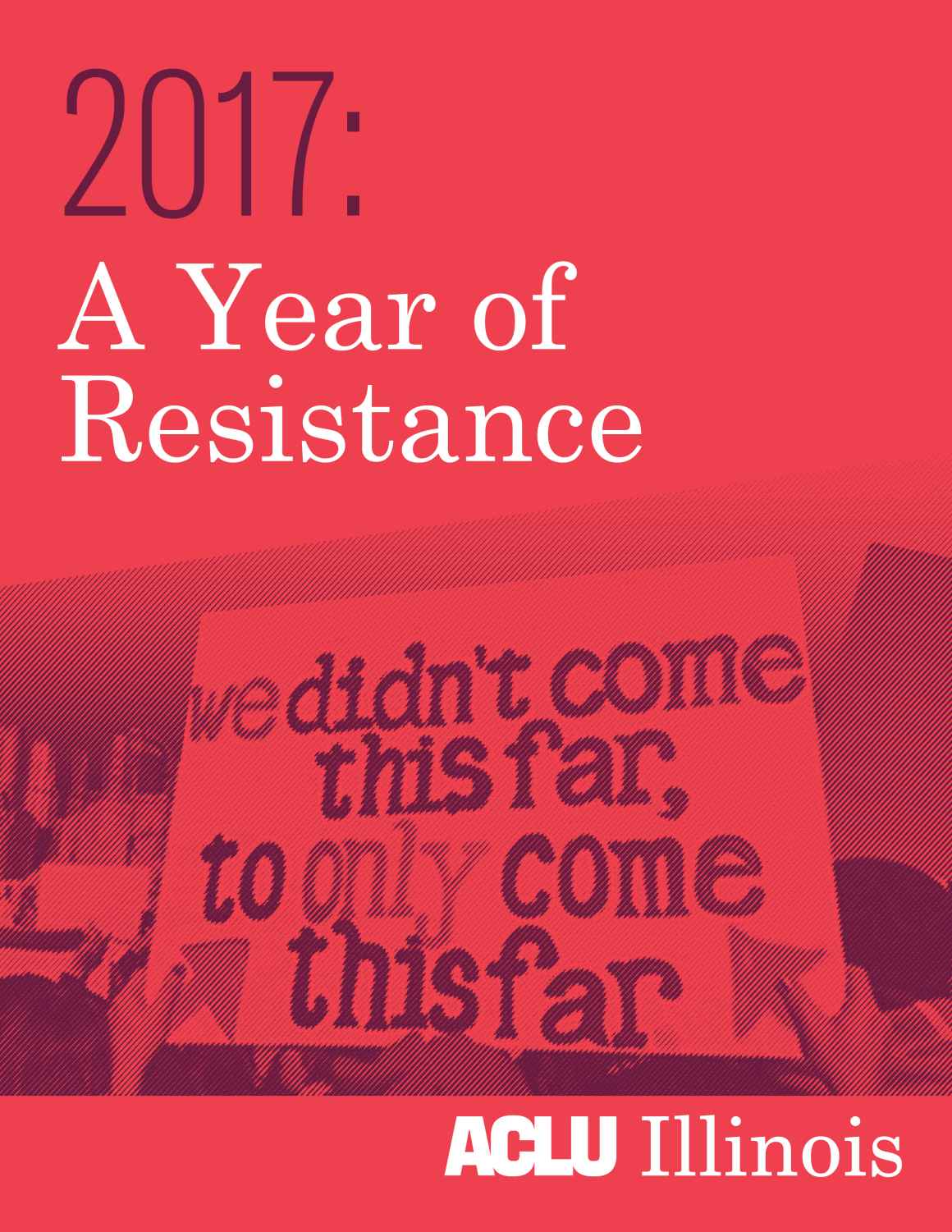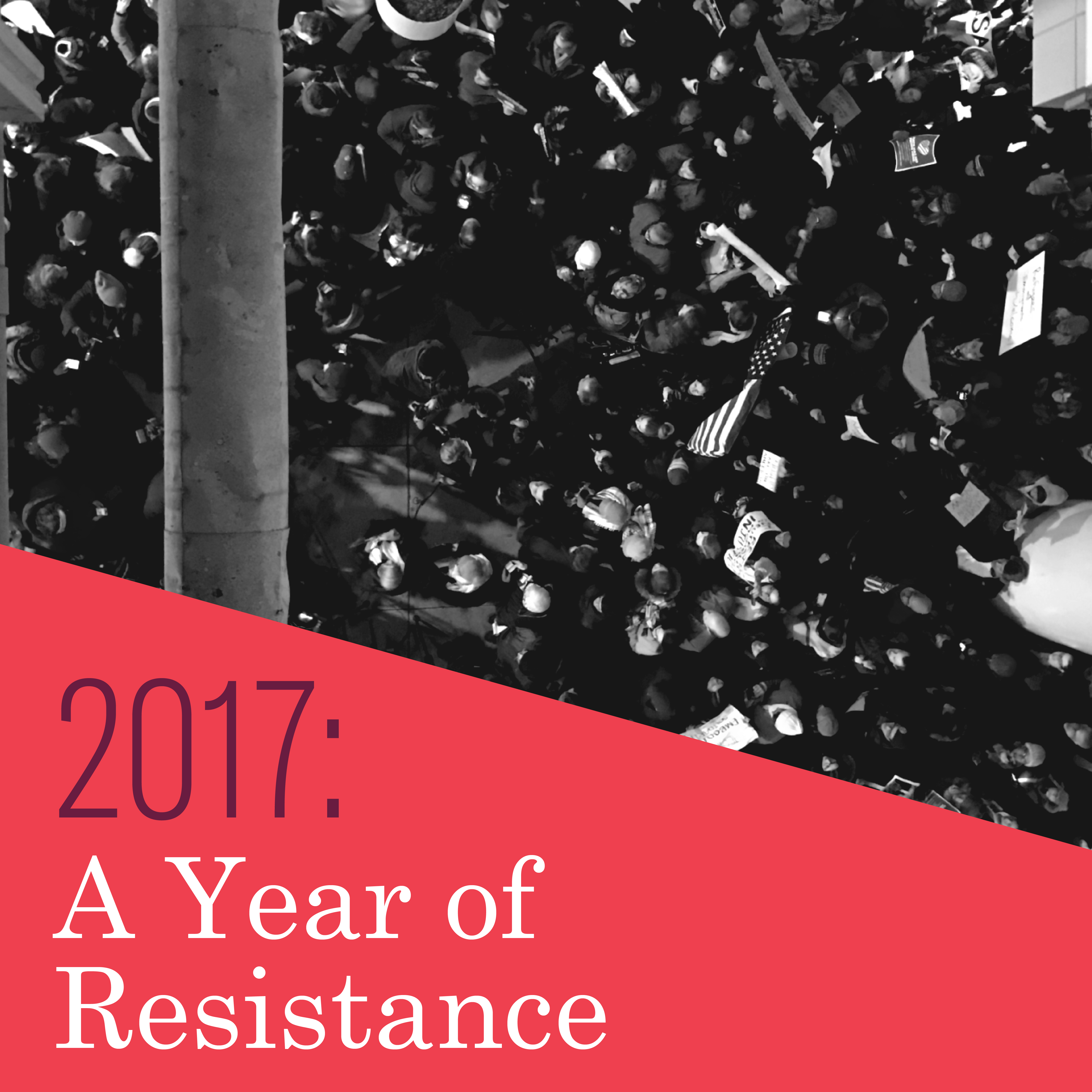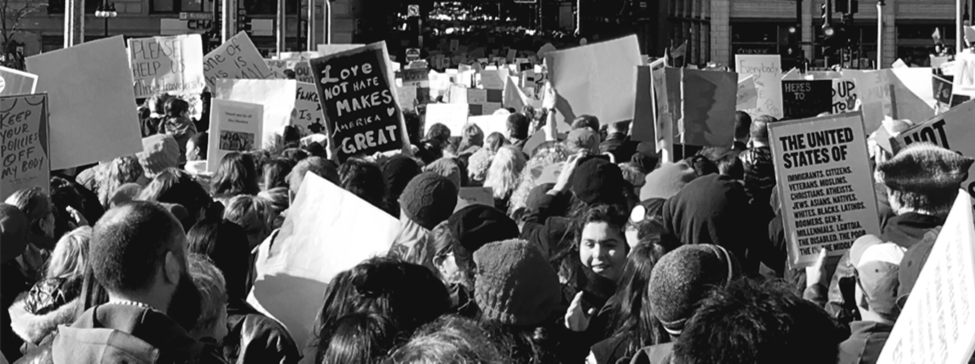For many folks I talk to regularly, 2017 has felt like an eternity. The daily drum beat of policy proclamations, the rushed consideration of harmful legislation through of harmful bills in Congress, and Tweets from the Trump White House have served as a daily reminder to the challenges faced today by those who cherish our Constitution and want to expand access to basic rights for many. It has been a long, hard, and constant fight.
Last week, someone I know expressed concern as the calendar turns over to a new year. They stated their apprehension that 2018 might well be more difficult than 2017. They further expressed concern that people will just give up and accept the “new normal.”
I don’t share this pessimism. Not in the least. I don’t see fear, I see hope.
2017 has demonstrated to me what is possible if we work together in the State of Illinois. Against the backdrop of all the craziness in Washington, we saw an important and meaningful expansion of access to abortion care in Illinois. After a push that has taken many years, Medicaid will now pay for abortion care in Illinois, and allow low income women to receive the same access to reproductive health care as anyone else.
We have seen bi-partisan support for fixing the dreadful civil asset forfeiture process in Illinois, forcing the State to prove that a resident’s property is not taken without some meaningful evidence that it was used in a crime. This horrific system is being promoted by Attorney General Jeff Sessions at the federal level, making our state improvements even more important.
We saw our state modernize its vital records laws, allowing those who are transgender to update the gender marker on their birth certificate without unnecessary and expensive surgery. The measure was possible through the courageous testimony of many people who are transgender and their families, courage magnified by the hostility that emanates from the Trump Administration.
But there is something more fundamental that makes me optimistic. You.
Over the course of 2017 I did more than 125 speaking engagements in communities all across Illinois. While I saw lots of friendly faces, it was striking in each and every community to see new advocates, new participants in our democratic system.
And, what I have seen has been so amazing. In the Northwest suburbs of Chicago, I saw people outraged and committed to addressing the problems of racism in our criminal justice system. In Peoria, I heard the cheers of an auditorium of Muslim worshippers when I said the ACLU would protect the rights of LGBTQ people across the nation. In a unique and important show of unity, I have seen advocacy groups who work on a variety of different issues join together to stand up for immigrants and refugees.
It was moving to see in 2017 the mothers of students who are transgender work together, go door-to-door and win a critical election for school board that might have affected their children and others like them. It was inspiring to see men and women who never participated in an advocacy effort before the 2016 election raise an important issue for our state – Illinois’ participation in the “Crosscheck” system – and engage state legislators in that effort. Illinoisans are engaging, protesting, advocating, and showing up for each other like never before. It was exhilarating to speak to a ballroom full of people in Normal who just want fairness for immigrant families.
In short, in these dark times, I have seen the best of people. I have seen that their hopes are not for discrimination and exclusion, but for fairness and inclusion. And, because I have seen that resistance, that persistence and that insistence on the part of so many across Illinois, I am hopeful as we enter 2018. And I look forward to working with all of you to build the kind of Illinois that we all want.
Date
Saturday, December 30, 2017 - 10:45amFeatured image



